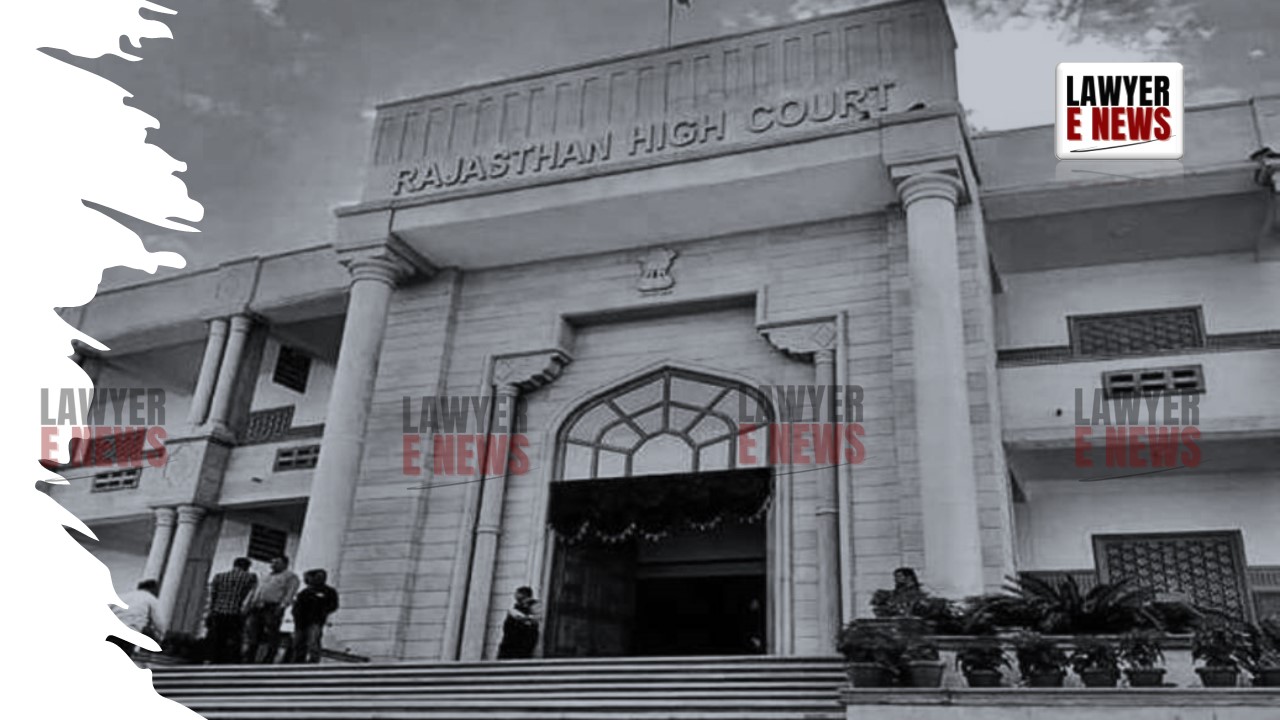-
by Admin
15 February 2026 5:35 AM



Subheadline: The Rajasthan High Court allows appeals against the rejection of electricity connections in Jaipur's Prithvi Raj Nagar Scheme, emphasizing the mandatory duty under Section 43 of the Electricity Act, 2003.
The Rajasthan High Court has quashed orders preventing the issuance of electricity connections to residences in the Prithvi Raj Nagar Scheme, Jaipur. The bench, comprising Justices Pankaj Bhandari and Shubha Mehta, underscored the mandatory duty of distribution licensees under Section 43 of the Electricity Act, 2003, to provide electricity upon request from occupants of any premises. The appeals were filed following a single judge's dismissal of the petitions seeking electricity connections.
The Court emphasized the statutory obligation of the Jaipur Vidyut Vitaran Nigam Ltd. (JVVNL) under Section 43 of the Electricity Act, 2003. According to the Act, a distribution licensee must supply electricity to any applicant within one month of receiving a complete application. The bench noted that the learned Single Judge's order restricting JVVNL from issuing electricity connections was in direct conflict with this statutory mandate.
"Restraining JVVNL from issuance of connection would be against the statutory provisions contained in Section 43 of the Act," the Court observed.
The appellants argued that the restriction on issuing electricity connections was imposed to prevent unplanned construction. However, the Court highlighted that such restrictions led to unauthorized electricity use and significant losses for JVVNL. The Court also questioned why the Jaipur Development Authority (JDA) could not prevent illegal constructions through other means rather than withholding essential services like electricity.
The High Court found that the appellants, who had occupied their premises and applied for electricity connections, were unjustly denied this essential service. The decision from the Single Judge was deemed erroneous for not considering the implications of Section 43 and the mandatory duty it imposes on the distribution licensees.
The Court's judgment was rooted in the clear language of Section 43, which outlines the duty of electricity boards to provide connections to applicants within a specified timeframe. The Court referenced several precedents, including Chandu Khamaru Vs. Smt. Nayan Malik & Ors. and Dilip (Dead) through L.Rs. vs. Satish and Ors., which support the appellants' stance that withholding electricity connections was unlawful.
Justice Pankaj Bhandari remarked, "The restriction imposed by the Court with regard to grant of electricity connection is dehors Section 43 of the Act, hence quashed. JVVNL is free to issue electric connection in accordance with law."
The Rajasthan High Court's ruling reinstates the fundamental right to electricity as enshrined in the Electricity Act, 2003, affirming that distribution licensees must comply with their statutory obligations. This judgment not only rectifies the immediate grievances of the appellants but also sets a precedent ensuring that essential services like electricity cannot be withheld arbitrarily, thus supporting lawful urban development.
Date of Decision: May 7, 2024
